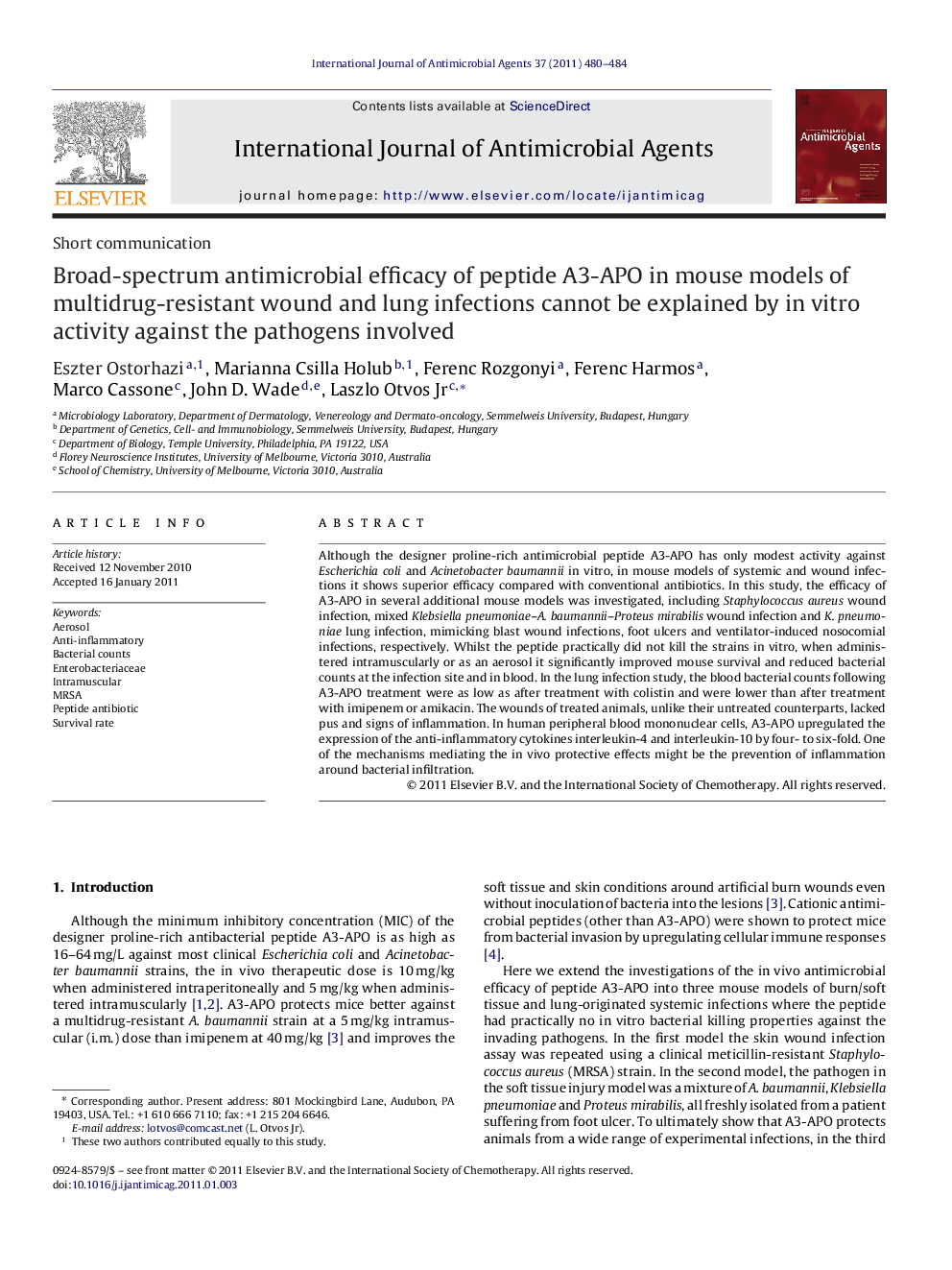| Article ID | Journal | Published Year | Pages | File Type |
|---|---|---|---|---|
| 6118431 | International Journal of Antimicrobial Agents | 2011 | 5 Pages |
Abstract
Although the designer proline-rich antimicrobial peptide A3-APO has only modest activity against Escherichia coli and Acinetobacter baumannii in vitro, in mouse models of systemic and wound infections it shows superior efficacy compared with conventional antibiotics. In this study, the efficacy of A3-APO in several additional mouse models was investigated, including Staphylococcus aureus wound infection, mixed Klebsiella pneumoniae-A. baumannii-Proteus mirabilis wound infection and K. pneumoniae lung infection, mimicking blast wound infections, foot ulcers and ventilator-induced nosocomial infections, respectively. Whilst the peptide practically did not kill the strains in vitro, when administered intramuscularly or as an aerosol it significantly improved mouse survival and reduced bacterial counts at the infection site and in blood. In the lung infection study, the blood bacterial counts following A3-APO treatment were as low as after treatment with colistin and were lower than after treatment with imipenem or amikacin. The wounds of treated animals, unlike their untreated counterparts, lacked pus and signs of inflammation. In human peripheral blood mononuclear cells, A3-APO upregulated the expression of the anti-inflammatory cytokines interleukin-4 and interleukin-10 by four- to six-fold. One of the mechanisms mediating the in vivo protective effects might be the prevention of inflammation around bacterial infiltration.
Keywords
Related Topics
Life Sciences
Immunology and Microbiology
Applied Microbiology and Biotechnology
Authors
Eszter Ostorhazi, Marianna Csilla Holub, Ferenc Rozgonyi, Ferenc Harmos, Marco Cassone, John D. Wade, Laszlo Jr,
